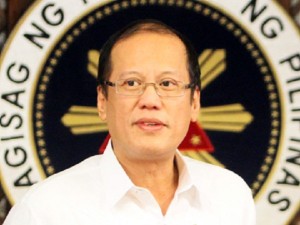Aquino leaves Friday for APEC summit
MANILA, Philippines—President Aquino is flying Friday to Russia to join world leaders at the Asia Pacific Economic Cooperation summit, with a chance to meet with Chinese President Hu Jintao to ease tensions in the West Philippine Sea (South China Sea).
But pending official confirmation, Malacañang on Thursday issued guarded statements about the possible Aquino-Hu meeting on the sidelines of the two-day summit, which a foreign official said was based on a “mutual request.’’
“We will confirm the meeting as soon as it has been ironed out by both the DFA and the Chinese Foreign Ministry,’’ Secretary Edwin Lacierda, Aquino’s spokesman, said. He maintained it was the Chinese side that requested the meeting.
In an earlier briefing, Foreign Undersecretary Laura del Rosario said Aquino would merely reiterate the Philippine position to “de-escalate” the territorial row should the meeting with Hu push through.
Aquino departs around 1 p.m. Friday on a chartered Philippine Airlines flight with a 66-member delegation, mostly business leaders.
Article continues after this advertisementThe presidential delegation includes Foreign Secretary Albert del Rosario, outgoing Transportation Secretary and incoming Interior Secretary Manuel Roxas II, Finance Secretary Cesar Purisima, Trade Secretary Gregory Domingo, Energy Secretary Rene Almendras and Lacierda, and Philippine Ambassador to Moscow Alejandro Mosquera, and Miguel Perez-Rubio, Malacañang’s chief protocol officer.
Article continues after this advertisementIn an August 29 briefing in Malacañang, Undersecretary Del Rosario said Aquino would explain “what we’re doing to de-escalate’’ the territorial dispute should Hu raise it. “The President will explain our position and what we’re trying to do,’’ she said.
Otherwise, the agenda of the bilateral meeting would be to reinvigorate trade between the two countries, Del Rosario said.
On the eve of the President’s departure, Lacierda welcomed Chinese officials’ promise to ensure freedom of navigation in the West Philippine Sea, the name the Aquino administration has given to the South China Sea, and assurance to work toward an eventual adoption of a code of conduct.
“Certainly, words that would give assurances are always welcome. And, also, it would be more welcome if it is followed through by concrete actions toward the fulfillment of those words,” Lacierda said in a Malacañang briefing.
He added: “Positive statements are more welcome than statements which have tended to be belligerent in the past. And so, therefore, words that would speak of cooperation, speak of respect for freedom of navigation of the seas, are certainly welcome to us.’’
“But, again, the position of the Philippines is that when it comes to the drafting of the Code of Conduct, Asean [Association of Southeast Asian Nations] centrality must first be maintained,” Lacierda said.
In their talks with visiting US State Secretary Hillary Clinton, Chinese leaders promised to ensure freedom of navigation in the West Philippine Sea, and cooperate with members of the Asean for the adoption of a binding code of conduct for the area.
The 10-member Asean failed to hammer out a “code of conduct” that would govern actions in the sea.
Philippine officials said earlier that China had taken part in discussions on the code of conduct for the past 10 years, but has not given any sign it would soon sit down with claimant-countries for the drafting of such a code.
China claims sovereignty over nearly all of the South China Sea, which is believed to sit atop vast amounts of oil and gas, is one of the region’s most important fishing grounds and has shipping lanes that are vital to global trade. The Philippines, Brunei, Malaysia and Vietnam and Taiwan claim parts of the sea.
Tensions flared up in the wake of China’s deployment of ships around Scarborough Shoal and fishing vessels around Pag-asa Island in May.
Territorial disputes in the West Philippine Sea should not dominate the agenda of the APEC summit, Lacierda said.
“This is primarily an economic summit so I don’t believe that it should be a hindrance to a discussion among the members of the APEC,’’ he said.
In the brief two-day summit and his bilateral meetings, Aquino would have ample time to push forward Philippine concerns in trade and economy, Lacierda said.
“Of course, we will always have to advance our national interest. That’s, of course, the primary concern of each and every nation and in relation to trade and economic interests,” he said.
In the summit and side meetings, the President expects “greater cooperation between the Asia Pacific nations,” Lacierda said, adding: “This is primarily an economic summit and so that’s what we’re looking for: Our trade with different members of the APEC and also strengthening of relations as well with member-nations.’’
